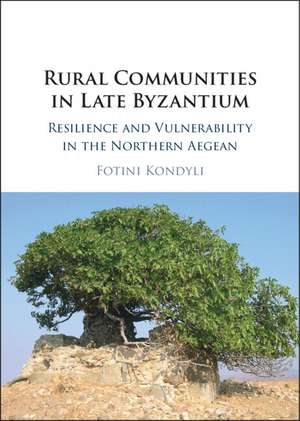Rural Communities in Late Byzantium: Resilience and Vulnerability in the Northern Aegean
Autor Fotini Kondylien Limba Engleză Hardback – 16 mar 2022
Preț: 628.56 lei
Preț vechi: 690.73 lei
-9% Nou
Puncte Express: 943
Preț estimativ în valută:
120.30€ • 125.11$ • 100.67£
120.30€ • 125.11$ • 100.67£
Carte disponibilă
Livrare economică 22 februarie-08 martie
Livrare express 08-14 februarie pentru 38.73 lei
Preluare comenzi: 021 569.72.76
Specificații
ISBN-13: 9781108845496
ISBN-10: 1108845495
Pagini: 302
Dimensiuni: 175 x 250 x 18 mm
Greutate: 0.69 kg
Ediția:Nouă
Editura: Cambridge University Press
Colecția Cambridge University Press
Locul publicării:Cambridge, United Kingdom
ISBN-10: 1108845495
Pagini: 302
Dimensiuni: 175 x 250 x 18 mm
Greutate: 0.69 kg
Ediția:Nouă
Editura: Cambridge University Press
Colecția Cambridge University Press
Locul publicării:Cambridge, United Kingdom
Cuprins
1. In Search of Late Byzantine Rural Island Communities; 2. Who is Who in the Rural Landscape: The Makeup of Late Byzantine Rural Communities; 3. Pathways of Resilience; 4. Defending the Realm; 5. Community Building in the Face of Crisis: A Landscape Approach; 6. The Return of the People; Appendix I; Appendix II; Bibliography.
Notă biografică
Descriere
Argues that Late Byzantine rural communities were resilient and able to transform their socioeconomic strategies in the face of crisis.
